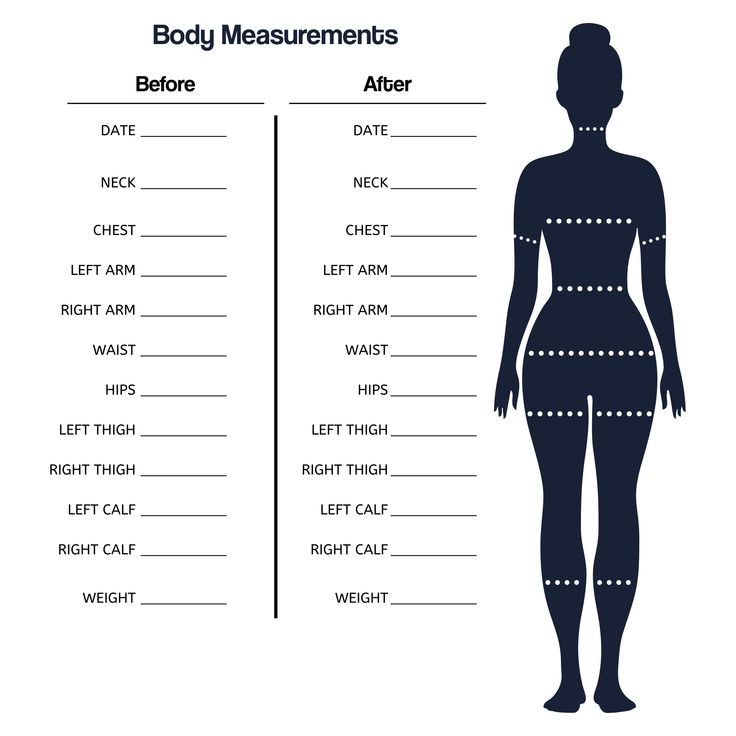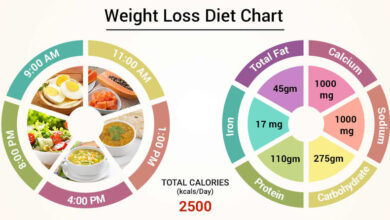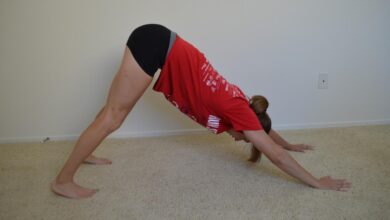
Tracking Your Steps Might Help You Lose Weight
Tracking your steps might help you lose weight, and it’s not just about hitting a daily target. It’s about understanding how movement impacts your overall health and well-being. The science behind it is clear: increased physical activity burns calories, boosting your metabolism and helping you shed those extra pounds.
But the benefits go beyond weight loss, impacting everything from your cardiovascular health to your mood.
Step tracking empowers you to take control of your fitness journey. By setting goals and monitoring your progress, you gain a deeper understanding of your activity levels and identify areas for improvement. The act of tracking itself can be incredibly motivating, encouraging you to stay consistent and push yourself further.
The Science Behind Step Tracking and Weight Loss

Step tracking has become increasingly popular as a tool for weight management, and for good reason. The science behind it is clear: increased physical activity, often measured in steps, plays a crucial role in weight loss. This article explores the relationship between physical activity and weight loss, delves into the role of calories burned and energy expenditure, and provides evidence supporting the effectiveness of step tracking in promoting weight loss.
While tracking your steps can be a helpful tool for increasing your activity levels, it’s important to remember that weight loss is a complex process. To truly understand your fitness IQ and how your exercise choices impact your overall health, take this fun true or false test your exercise iq.
The results might surprise you, and help you refine your approach to tracking your steps and reaching your weight loss goals.
The Relationship Between Physical Activity and Weight Loss
Physical activity is essential for weight loss because it burns calories. When you engage in physical activity, your body uses energy stored in the form of calories. The more active you are, the more calories you burn. This calorie deficit, where you burn more calories than you consume, is a key principle for weight loss.
The Role of Calories Burned and Energy Expenditure in Weight Management
Calories burned and energy expenditure are directly linked to weight management. Calories burned refer to the amount of energy your body uses during physical activity, while energy expenditure encompasses all the calories your body burns throughout the day, including during rest, digestion, and physical activity.
Tracking your steps can be a great way to boost your activity levels, which can lead to weight loss. But remember, a strong core is essential for supporting your body and preventing injuries, so it’s crucial to train it effectively.
Check out this article on 10 mistakes to avoid when training your core to make sure you’re getting the most out of your workouts and avoiding common pitfalls. A healthy core will make it easier to move around and stay active, helping you reach your step goals and ultimately contribute to your weight loss journey.
To lose weight, you need to create a calorie deficit. This means burning more calories than you consume.
It’s great that you’re focused on losing weight by tracking your steps! But remember, sometimes unexpected factors can play a role. Have you considered that could your medications be causing weight gain ? If you’re struggling to see results, it’s worth checking in with your doctor to rule out any medication-related issues.
Then, you can keep crushing those step goals with even more confidence!
Step tracking can be a powerful tool for managing energy expenditure. By tracking your steps, you can gain a better understanding of your daily activity levels and make adjustments to increase your calorie burn.
Evidence Supporting the Effectiveness of Step Tracking in Promoting Weight Loss
Numerous studies have demonstrated the effectiveness of step tracking in promoting weight loss.
- A study published in the journal “Obesity” found that participants who used a pedometer to track their steps lost more weight than those who did not. The study participants who tracked their steps walked an average of 2,000 more steps per day, leading to a significant increase in calorie expenditure.
- Another study published in the “American Journal of Preventive Medicine” showed that individuals who increased their daily step count by 10,000 steps experienced a significant reduction in body mass index (BMI) and waist circumference.
These studies highlight the positive impact of step tracking on weight loss. By increasing physical activity and monitoring your progress, step tracking can be a valuable tool for achieving your weight management goals.
Integrating Step Tracking with a Comprehensive Weight Loss Plan

Step tracking can be a valuable tool for weight loss, but it’s crucial to integrate it into a holistic plan that addresses multiple aspects of health and wellness. Simply focusing on step count alone won’t guarantee success.
Importance of a Comprehensive Approach, Tracking your steps might help you lose weight
A balanced weight loss plan encompasses diet, exercise, behavioral modifications, and other crucial factors influencing weight management. Step tracking fits into this framework by promoting physical activity, but it shouldn’t be seen as a standalone solution.
- Diet:A healthy diet is fundamental for weight loss. Focus on consuming nutrient-rich foods, controlling portion sizes, and limiting processed foods and sugary drinks. Step tracking can motivate you to be more active, which can help you manage cravings and make healthier food choices.
- Exercise:Step tracking encourages you to be more active, but it’s essential to incorporate other forms of exercise into your routine. This could include strength training, cardio, or activities you enjoy. A balanced exercise plan helps build muscle, improve cardiovascular health, and increase calorie expenditure.
- Behavioral Modifications:Weight loss often requires changes in habits and behaviors. This could include setting realistic goals, finding healthy coping mechanisms for stress, and making gradual changes to your lifestyle. Step tracking can help you develop a routine and track progress, which can be motivating and empowering.
The Importance of Other Factors
Beyond diet and exercise, several other factors influence weight loss, and step tracking can indirectly address these:
- Sleep:Adequate sleep is crucial for weight management. When you’re sleep-deprived, your body produces more of the hunger hormone ghrelin and less of the satiety hormone leptin, making it harder to control cravings and maintain a healthy weight. Step tracking can encourage you to establish a regular sleep schedule, which can indirectly improve your sleep quality.
- Stress:Chronic stress can lead to weight gain. When you’re stressed, your body releases cortisol, a hormone that promotes fat storage. Step tracking can provide an outlet for stress by encouraging physical activity, which can have a calming effect. It can also help you manage stress by promoting a sense of accomplishment and progress.
- Hydration:Staying hydrated is essential for overall health and weight management. Water helps you feel full, supports metabolism, and aids in calorie burning. Step tracking can remind you to stay hydrated, as you’ll likely need to drink more water during and after physical activity.
Using Step Tracking to Track Progress and Make Adjustments
Step tracking provides valuable data that can be used to track progress and make adjustments to your weight loss plan:
- Monitor Step Count:Use your step tracker to monitor your daily step count. Set realistic goals and gradually increase your steps over time. Tracking your progress can be motivating and help you identify areas where you can increase your activity.
- Identify Patterns:Analyze your step data to identify patterns in your activity levels. Are there days or times when you’re more active? Are there specific activities that lead to higher step counts? This information can help you plan your activities and incorporate them into your routine.
- Adjust Goals:If you’re not seeing the desired results, adjust your goals or find new ways to increase your activity. Consider adding new activities, exploring different routes, or incorporating more movement into your daily routine.
- Celebrate Successes:Celebrate your achievements and acknowledge your progress. This can help you stay motivated and committed to your weight loss goals.
Final Review: Tracking Your Steps Might Help You Lose Weight

Incorporating step tracking into your life can be a powerful tool for achieving your weight loss goals. It’s about finding a balance between a healthy diet, regular exercise, and a mindful approach to your overall well-being. Whether you choose to use a dedicated fitness tracker or simply rely on your smartphone, remember that every step counts.
So lace up your shoes, set your goals, and start moving towards a healthier, happier you!





